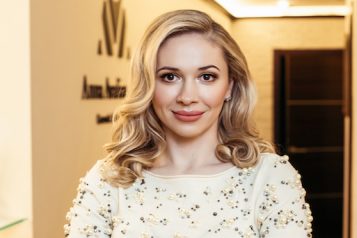
In an era where gyms and “CrossFit” facilities are popping up like hot dog stands, it is important to take note of those that truly strive to offer quality to their clients.The Dogpound gym is doing exactly that. Yet it is noteworthy to know about its evolution; the driving fuel behind its success. It was founded by Kirk Myers, an inspirational soul who I have had the pleasure of meeting and conversing with. Kirk’s own story is one of triumph and serves as the inspiration driving the Dogpound’s success. Before he was training the Hollywood elite, Kirk was diagnosed with congestive heart failure due to obesity. He has transformed from a once 300+ pound man lying in a hospital bed to becoming perhaps the most sought-after fitness trainer in the country. This sort of dedication and perseverance carries with it the momentum that is unstoppable when transferred to a vision to help others. I, as a physician, can personally testify to his devotion and authentic passion to help others. There is another key ingredient in the Dogpound pedigree that sets them apart and it is for this reason that I became a part of their team; EDUCATION. Like a physician, a personal trainer’s obligation is also to educate; to teach proper movement and the ability to recruit various muscles in performing those movements – that is where my expertise was recruited. The Dogpound, similar to HAUTE LIVING, recruits only the best; delegating each aspect of its structure to competent and likewise passionate individuals such as Renne Campos Simoes, the architectural beast behind the design of the gym and implementation of its virtues.
What’s the most popular goal when a Dogpound athlete comes to you for treatment?
My overarching goal with these athletes, as with my patients, is to assist their musculoskeletal system to accommodate correct movement. There is a misconception in the gym environment that it is the amount of weight and repetitions that matter most. This is untrue and likely harmful. It is the motion (plain of correct movement) that serves as the primary culprit in isolating the intended muscle(s) we aim to strengthen….and furthermore without causing injury to our joints, including spinal joints and intervertebral disc. Structure dictates function; this is true of any moving object, including our bodies. The Dogpound philosophy incorporates this vital premise into their way of life.
How often do you see them?
I typically see these clients on a weekly or bi-weekly basis. The clients that benefit most from my care are those who enter “healthy”. Those who get treated and assessed on a regular basis prevents dysfunction/pain. This is true “HEALTHcare”- preventative or wellness care. There is a shift away from the current model of “sickcare” where people seek treatment for problems after it occurs, rather than treatment to optimize their health and avoid the problem all together.
Do you recommend any sort of personal training/nutrition goals to help them reach their goals?
Absolutely! Make no mistake about it, nutrition can always expedite your health-related goals. Nutrition works in conjunction with activity. By the same token, poor nutrition can negatively affect people in ways they may not realize until they feed their bodies with the nutrients our bodies crave. It is important to also note that overall health not only makes us feel better, it allows our nervous system to function optimally; with huge ramifications on such things as clarity of thought when making decisions and tasks that require optimal mental capacity such as those demanded by our respective careers. You do not have to take my word for it, try and optimized nutrition regiment along with your physical activity and you will experience the benefits for yourself. Nutrition is a vital component in the Dogpound philosophy – another distinguishing factor that sets this gym apart from many others.
What treatments work best in helping athletes?
This is a great question; I am asked this question often. The answer is, “depends on the particular athlete”. Any skilled physician and/or trainer will tell you that there is no universal protocol that optimally benefits everyone. The “right” protocol depends on many variables; the past history of injury, present lifestyle and level of activity, the individual’s stature, observable asymmetries of that individual, a gait examination and, equally important, the client’s goal(s). The answers to these will vary from client to client and therefore demand a specific, individually catered treatment protocol. Generally speaking, however, soft-tissue work is a vital component that should precede joint or osseous manipulation. I have found this to be highly effective in treating and optimizing my patients.
Does weight training minimize the risk of spine injury?
This is another great question I get often. The answer is, “it could”. There are certain movements/activities that are questionable with regards to spine health. The general rule is to minimize compressive forces and also to accommodate the various intended motions of our spinal joints, rather then defy them. If one was to take a close look at the human spine, it becomes evident that our neck (cervical), mid-back (thoracic) and low-back (lumbar) spine each are constructed to facilitate a certain movement. For example, the most rotation (turning left or right) takes place in the cervical spine, the neck. The reason is due to the articulating surfaces facing 45 degrees to the transverse plane. Compare that to the low back region whose articulations are at 90 degrees-primarily allowing for forward and backward bending (and little to no rotation as found in the neck). Correct weight-training can indeed minimize the risk of spine injury. This is why it is vital to be trained by a knowledgeable, educated trainer who go above and beyond simply making you come in and sweat. One element of the Dogpound that earned them credits in my book is the fact that they have an “Educational” department that strives to maintain a certain level of cutting-edge knowledge that ultimately benefits their clients. I am pleased to assist both them and their clients in the transmitting of that knowledge.
For more information, visit Dr. Brian A. Levine's social media:

























